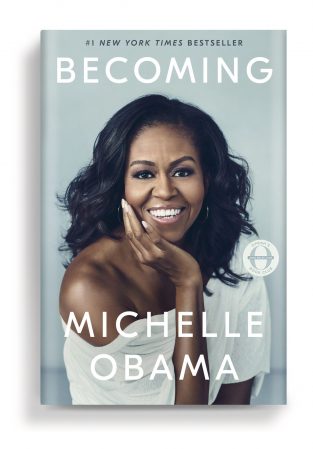Related Posts
I have been moved to tears reading parts of Michelle Obama’s autobiographical book, Becoming. It is uplifting and validating to read the unfolding of her and Barack Obama’s intertwined stories. As she tells it, while much was different about their upbringing and childhoods, they shared a devotion to learning, introspection about their missions in life, observation of the world around them, listening to people’s stories and public service.
Their personal histories are built upon intellect, empathy, compassion and commitment. Michelle Obama describes her husband as fueled by a sense of obligation to the world, even when he was a student at Harvard Law School. According to her, their path to the White House came from a deep drive to make people’s lives better by increasing equity of opportunity, fairness and hope.
Their stories resonated with me, as I grew up with a father who believed passionately in the service-oriented path espoused by Albert Schweitzer, who said in a speech to students, “I don’t know what your destiny will be.… But I know one thing: the only ones among you who will be really happy are those who have sought and found how to serve.”
The authentic desire to make people’s lives better – and the belief that government can be a means of doing that – also drove many in my generation to be who we became. Today, that visceral drive powers many Gillings School students. It’s the better part of who we are as a School – and as a country. I’ve talked with so many people about the book, and they say it makes them wistful (as it does me) to recall a president and first lady who seemed every minute to be working on behalf of the American people, especially those who lacked resources, such as health care.
Michelle Obama’s story also is a reminder that, while race may define some aspects of who people are and what they experience, it is only part of who we are. Intersectionality also is important. As a woman who grew up in 1960s America, I could relate to many of Michelle Obama’s experiences, but as a white female, with white privileges, I have not walked in her shoes.
Still, I found similarities in our life experiences. Michelle Robinson was brought up to work hard; she worked intensely as a student to prove that she was good enough. Her teachers and high school counselor underestimated her and could have caused her to diminish her own potential, had her mother not advocated for her, and had she not come to trust herself and found true mentors who believed in her. She and I are different, but that does not prevent us from also being similar. That’s part of what makes us human. I believe that’s also why the book resonates with so many people.
I’ll return to Michelle Obama’s story because it is helping me to think about who we are as a country, what we have become and who we still can be.
Barbara
The views expressed in this blog are Barbara Rimer’s alone and do not represent the views and policies of The University of North Carolina or the Gillings School.

